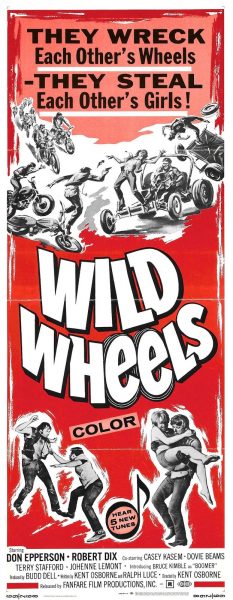Editor’s Note: Last week, in Part 1, we discussed ideas for traffic stop reform. This week we delve into some of the thornier issues for reform from the NMA perspective.
Recently, Berkeley, California’s city council passed an ordinance to remove police officers out of the traffic enforcement equation. After the requisite planning and community input, the council is expecting the city’s Department of Transportation to pick up that responsibility as early as next year. It will be an interesting “experiment” to watch. Berkeley will be the first US city to try this with traffic enforcement. City council members in Cambridge, Massachusetts, have also begun the discussion of letting unarmed city employees make traffic stops.
According to FBI data, the majority of routine traffic stops are not dangerous for officers. In 2019, only six officers were killed during traffic stops. No one knows if putting people in the field that don’t carry guns will deescalate confrontations that can occur during traffic stops and accident investigations. Would racial profiling be curbed with a different kind of “officer?” Would these new kinds of enforcement personnel feel safe without the protection of a badge and gun? Would a bias against drivers due to a city’s Vision Zero program become the norm? There are many more questions than answers.
Across the country in New York City, Brooklyn District Attorney Eric Gonzalezannounced his office would create a new Street Safety Bureau to beef up the NYPD’s Collision Investigation Squad. He also plans to work with lawmakers to create bills to combat “vehicular violence.” Upon creation, a prosecutor from the DA’s office would go to every fatal crash, day or night. Gonzalez says that prosecutors will be able to determine earlier whether a case is criminal (for motorists) or not.
Other reformers have gone further and called for a nongovernmental safety agency or nonprofit entity to handle traffic accident investigations. The agency would handle taking reports, performing accident reconstruction, directing traffic at the scene, and testifying in court if necessary.
Would supplementing or even replacing some police department functions such as traffic enforcement and accident investigations be feasible? If officers are not used in either scenario, city and state officials might be encouraged to turn all traffic enforcement and accident issues into civil instead of criminal cases.
Civil court, of course, is vastly different than criminal court. The accused loses several due process rights. The concept of innocence or guilt is essentially foreign to civil court. The ticket recipient would be found responsible or not responsible, with the constraints of the civil court making it more challenging to achieve the latter. Moving all traffic matters to a civil court system would encourage, to a greater degree, some cities and states to run ticket mills.
Automated Traffic Enforcement, Street Surveillance, and Big Data
Automating traffic enforcement with devices such as red-light, speed, and distracted driving cameras coupled with facial recognition and license plate readers would be among the worst of police reform outcomes for motorists.
Constitutional rights would be routinely violated, and having Big Brother watching every move we make is the sort of society none of us want America to become. Ironically, cameras and surveillance will not make the streets safer in the long run.
Jay Beeber of Safer Streets LA recently had this to say about increasing automated camera enforcement:
“Advocates argue that they will eliminate the need for police interaction, and so are more “equitable.” However, to be effective in that regard and negate the potential negative effects of lowering the speed limit, you’d have to place them primarily in lower-income neighborhoods with large populations of people of color. This leads to the problem that automated enforcement issues orders of magnitude more tickets than police officers. So now you’ve created an economic burden in communities that are least likely to be able to afford it. And this is especially true in places like California where ticket prices are exorbitant.”
As cities become ‘smart,’ connected data will help municipalities operate with more cold efficiency, including opening the door for more surveillance of their citizenry. Facial recognition has already been banned in several US cities—Boston is the latest.
Use of Police Drones or Robots during Traffic Stops
The use of Robocops and flying drones for traffic stops is overkill. Many technology companies are pushing this idea that police officers at the time of a stop, could utilize a flying drone or walking robot. The police officer would never have to interact with the driver, but talk through the drone/robot interface and even issue a ticket by drone or robot. Flying police drones will likely be used in traffic enforcement (like small airplanes) and traffic accident reconstruction.
Sounds like a sci-fi movie depicting a dystopian future.
Determining what kind of policing we want in our community should be part of the democratic process. As free citizens, we need to have our voices heard so that decisions are measured and appropriate.
Whatever happens with police reforms, traffic stops are a significant part of the problem and also need to be part of the solution.

